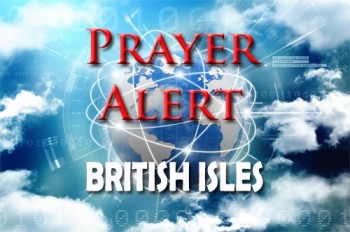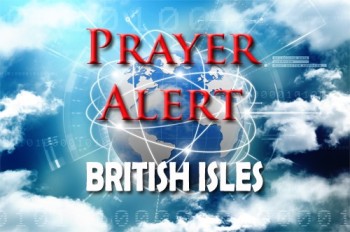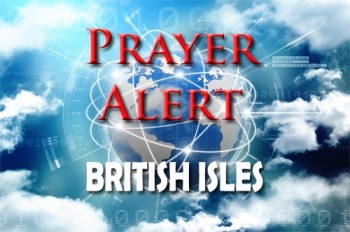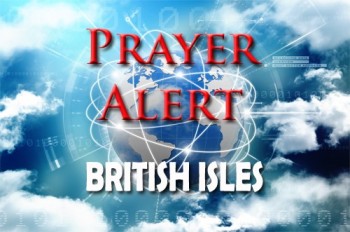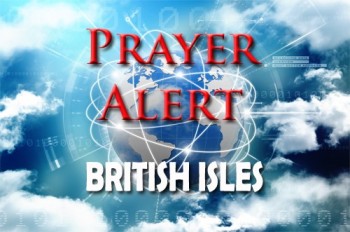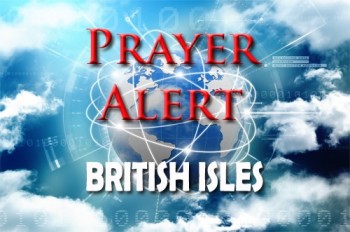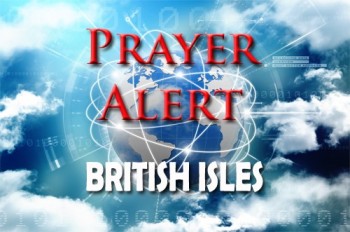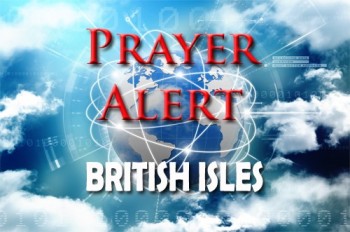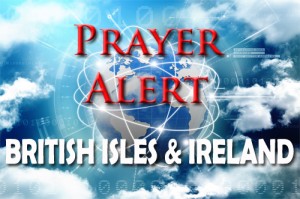Displaying items by tag: charities
Charities: end-of-life care must be fixed before changing legislation
As Parliament debates assisted dying legislation, several charities stress the urgent need to fix the country’s struggling end-of-life care system. Hospices provide vital palliative care, but funding shortages mean that care quality varies across the UK. Tim Daly, who has learning disabilities and cancer, relies on hospice care to remain at home with his mother Valerie. His nurse, Phoebe Mooney, provides essential support, but working in such emotionally demanding roles is challenging. Many hospices rely on charitable donations, with only a third of their funding coming from the government, creating a 'postcode lottery' for care. One commentator has said that people need assurance of symptom control and support before any changes in the law around assisted dying. Hospice UK’s Charlie King warns that the healthcare system is already under significant stress; introducing assisted dying without fixing end-of-life care could exacerbate the situation. Sustainable funding is essential for quality care. See also Justin Welby’s comments:
Charities' anger as government 'downgrades' disabilities minister role
Charities have expressed outrage as the Government demoted the disability minister role - during Disability History Month. The vacancy arose when Tom Pursglove became legal migration minister. Mims Davies, the new appointee, will maintain her focus on social mobility from her previous role as minister for social mobility, youth, and progression. Disability charities criticised the move, highlighting it as the longest gap without a minister in thirty years. Downing Street refuted claims of downgrading the position, insisting that a minister for disabled people would remain. However, the charities argue that the minister should not have divided responsibilities and demand the restoration of a dedicated minister of state. James Taylor from Scope emphasised the need for a full-time leader for disability strategy in government. The National Autistic Society's Tim Nicholls called for clarity on the role's scope and reassurance that disabled people's needs are a priority. Meanwhile, a government spokesperson stated that Davies would continue supporting disabled people, noting achievements in employment and financial aid for the disabled.
Call to continue Homes for Ukraine scheme
Along with over thirty other charities, Sanctuary Foundation, which helps people welcome Ukrainian refugees into their home, has written to ask the Prime Minister for assurances the Homes for Ukraine scheme will continue to get government backing and support. There is concern the initiative is being ‘quietly phased out’. Host families are worried that ministers will not increase support to match rising costs of living. Households receive £350 a month for hosting someone from Ukraine, but there are calls for that amount to be doubled. Since March, over 96,000 Ukrainian refugees have arrived in the UK, but a BBC investigation found that in 14 months 116 unaccompanied child refugees from across the world have gone missing from UK hotels. They were temporarily housed by the government, but charities fear they risk being exploited.
‘Big Winter Sleepout’ is back
You may be apart but you can sleep out together. London City Mission are inviting people to spend the night of Saturday 21 November sleeping outside to raise money and awareness of those in London facing this winter without a home. The 2020 Sleepout event is in support of the Webber Street Homeless Day Centre, which offers practical help and the hope of Christ to the homeless. This year it will be a virtual, fun activity with online talks from those working at Webber Street with other people joining you from all over the country live via Zoom. The organisers say, ‘There’s loads of exciting ways to jump into a sleeping bag and make heaps of difference. It’s an exciting and challenging way to get others to support you and raise money together for people living on the streets in London. For more information go to
Kickstart - churches and charities working together
A new government scheme is enabling churches and charities to support some of the most vulnerable in the job market. The pandemic has disproportionately impacted those aged 18-24. Between March and August there was a 124% increase in claims for Universal Credit from people in this age group. With the economic future remaining uncertain, Rishi Sunak announced a new job creation scheme to help avoid damaging long-term employment for young adults. Dubbed the ‘kickstart scheme’, this package of support will subsidise the employment of 16 to 24-year-olds by providing six-month quality work placements that don’t cause existing employees or contractors to lose work; give a minimum of 25 hours per week for six months; paying at least the national minimum wage for their age group; and should not require people to undertake extensive training before they begin the job placement.
£750 million funding for charities
On 8 April Rishi Sunak announced that the Government has promised an extra £750 million coronavirus funding for frontline charities across the UK. The support package will ensure that they can continue their vital work during the coronavirus outbreak. The Government will also match funds with whatever the public decides to donate to the BBC’s Big Night In charity appeal on 23 April, starting with a contribution of at least £20 million to the National Emergencies Trust appeal. Mr Sunak said, ‘Our charities are playing a crucial role in the national fight against coronavirus, supporting those who are most in need. It is right that we do everything we can to help the sector during this difficult time.’ Among the charities that will benefit will be those supporting domestic abuse victims, end of life hospices, foodbanks, those delivering food or essential medicines, and those providing financial advice. Pray for the administration between departments identifying priority recipients to flow smoothly and speedily.
The Big Give
The Christmas Challenge is the UK's biggest online match funding campaign. Since 2008 it has helped raise over £98 million for thousands of charities. In 2018 it raised £13.3m for 589 participating charities. This year the challenge will be between 3 and 10 December. Every person who pledges a donation to one of the participating charities will have their gift matched by Christmas Challenge, so that every donation will make twice the impact on charities working to improve human rights, rescue animals, support the disabled, elderly and homeless, ending child slavery (International Justice Mission), caring for those in poverty (Salvation Army), and many more both at home and abroad.
12,000+ charities accused of promoting religion
The National Secular Society (NSS) claims that 12,000+ charities exist solely to promote religion, with some using public money to promote extremism and harmful practices, and calls for the advancement of religion to be removed from the list of charitable purposes. Although benefits provided by most of the charitable purposes relieve poverty, promote good health, save lives and protect the environment, the NSS said the benefit to the public by advancing a religion is far more contestable and based on the outdated presumption that religion is inherently a good thing. It believes religious fundamentalism has demonstrated that religion can exacerbate tension, division, segregation and conflict in Britain, and ’as such there is a clear need to consider whether religion should be regarded as an inherent public good deserving the status of a charitable purpose’. The NSS has written to the charities minister, calling for the removal of the advancement of religion as a charitable purpose.
North Korea and human rights
300 human rights organisations, including several Christian charities, sent a joint letter to North Korea’s Kim Jong-Un, urging him to make lasting improvements to his country’s dire human rights situation. The charities welcome increased dialogue with other countries, but state that they have yet to see actions on the part of the government ‘that would signal clear improvements in the lives of citizens or their basic rights and freedoms’. The letter urges Kim to increase engagement with international human rights systems, end abuses in detention and prisons, establish regular meetings for separated families of foreign nationals with relatives in North Korea, and accept international humanitarian aid with appropriate monitoring to ensure it reaches needy people and communities. Pray for the families of those executed or in labour camps; ask God to bless and protect North Korean Christians who face daily terror as they live out their faith. See also the article in the World section.
Charities say G20 plans for Africa are flawed
This year’s G20 launched ‘Africa Partnership’, but charities are wary because it focuses on increasing private investment in the continent. Participating countries were invited to develop their own plans, to reduce the risk for private investors. At the summit, Britain set out proposals to build a partnership with a view to creating ‘more opportunities for London to become the finance hub for Africa’. Christian Aid described the G20 plan as badly flawed as it didn’t mention climate change. Oxfam said that it is important to recognise that growing economies will not automatically provide people with enough food to eat or life-saving medicines - especially as Africa is home to some of the most unequal countries on earth. Global Justice Now described it as ‘more like a partnership to exploit Africa - foisting the demands of international finance onto Africa in return for a bit of aid.’
